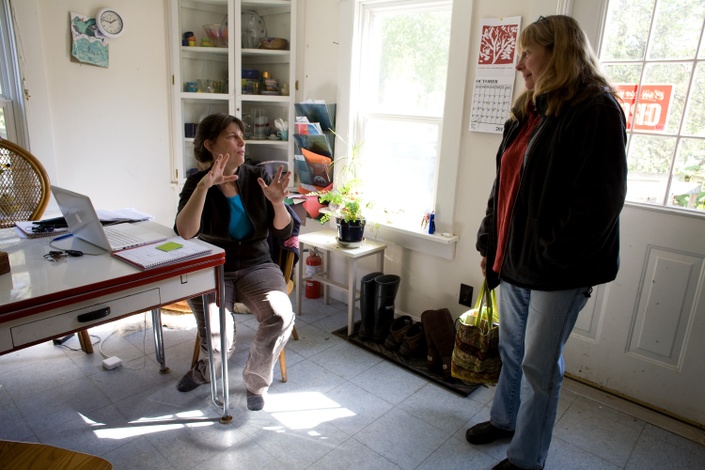
The Ecology of Care: October 16th Workshop and Gathering
Medicine, agriculture, money, and the quiet power of human and microbial communities
Enroll in Course
Do you want to change how we care for each other, and the ecosystems that we are nested within?
Are you looking for a community interested in figuring this out together?
Join us, October 16th, at 5:30 PM EDT (New York, USA)
I spent 9 years of weekends writing The Ecology of Care: Medicine, Agriculture, Money, and the Power of Human and Microbial Communities (between 2006 and 2015). Readers tell me it is more relevant than ever, and I agree.
In the second half of Chapter One, I describe the history of "distillery dairies" and early feedlots during the industrial revolution, and how they led to terrible outbreaks of disease from sick cows and infected milk (50% infant mortality rates in humans, short miserable lifespans for cows). This led to pasteurization, and helped to solidify the germ theory of disease. However, it was also an entryway into a new approach to both medicine and agriculture--separating humans and animals from their natural surroundings, and then killing off pathogens and intruders. Likewise, antibiotics, fertilizer, herbicides, and other modern technologies also developed in the larger context of human wars in which we developed special technology to kill and injure each other and then needed to deal with the results.
In this workshop we will look at this issue through our own lives, using living systems frameworks to see where we get pulled into seeing animals, microbes, even people we disagree with, as "other", rather than an aspect of our own community.
The health of humans and ecosystems are declining even more rapidly than when I wrote it—a decline driven primarily by the extractive quest for profits. Most frightening to me are the complex neurological issues that are increasingly affecting our ability to think clearly about the issues we face. Yet it doesn’t have to be this way. It really doesn’t. There are places in the world that are addressing many of these issues together, with great success. It’s time to bring the promise and perspective of the Ecology of Care back into focus, worldwide.
Because of this, I’ve decided to offer chapters of the book on Substack, and two gatherings leading up to an international live discussion course related to the topic—so we can use a living-systems approach to find effective interventions where each of us lives and works.
This workshop and international gathering will be in the form of a discussion, using living systems frameworks, and will be based on , Chapter One, Part Two. You may also want to read or listen to the first half of Chapter One, and the Introduction to the book.
A longer course will start soon. People who attend one of these initial gatherings will have priority for course registration if the course is overfilled. Active members of the Land and Leadership Development Community can attend the gatherings and course for free.
You can watch the recordings of our first and second gatherings as well, which are included in the curriculum here when you sign up.
Your Instructor
Didi Pershouse is well known as an innovative international educator both in-person and online. She is the founder of the Land and Leadership Initiative. Her facilitator's guide Understanding Soil Health and Watershed Function, is used in over 60 countries.
She became deeply involved in the intersection of food systems and health systems while providing rural health care for two decades at The Center for Sustainable Medicine, and wrote The Ecology of Care: Medicine, Agriculture, Money, and the Quiet Power of Human and Microbial Communities.
Currently she is writing a field training manual for the UN-FAO Farmer Field School Program and the Andhra Pradesh Community Managed Natural Farming Initiative in India, involving over 800,000 smallholder farmers. She was a contributing author to The Climate Emergency: How Africa Can Survive and Thrive; Climate Change and Creation Care; and Health in the Anthropocene. She was one of five speakers at the United Nations-FAO World Soil Day in 2017.
She serves on the Planning Commission for her town, is a board supervisor for the White River Natural Resources Conservation District, and is on the board of directors of the Soil Carbon Coalition and the Vermont Healthy Soils Coalition. While serving on the state appointed Payment for Ecosystem Services and Soil Health Working Group, she helped to reorient the program back to its public roots. She led a successful effort to conserve the Zebedee Headwaters Wetland while serving as a Vermont Conservation Commissioner.